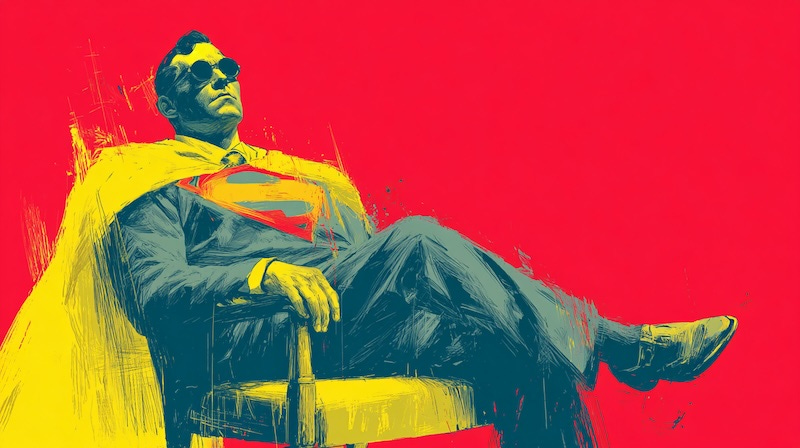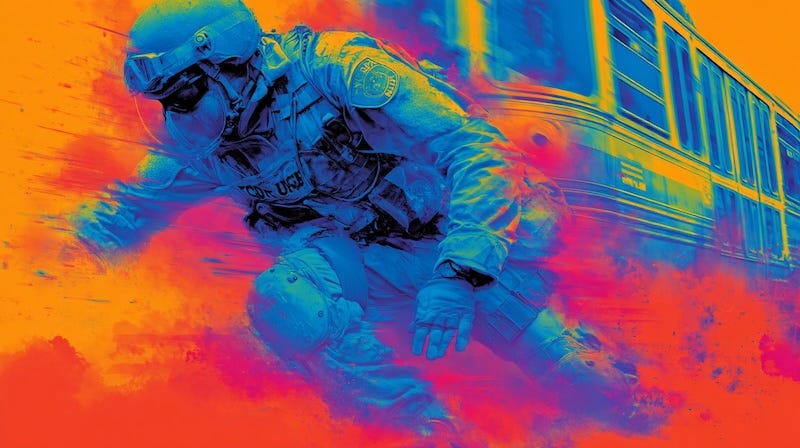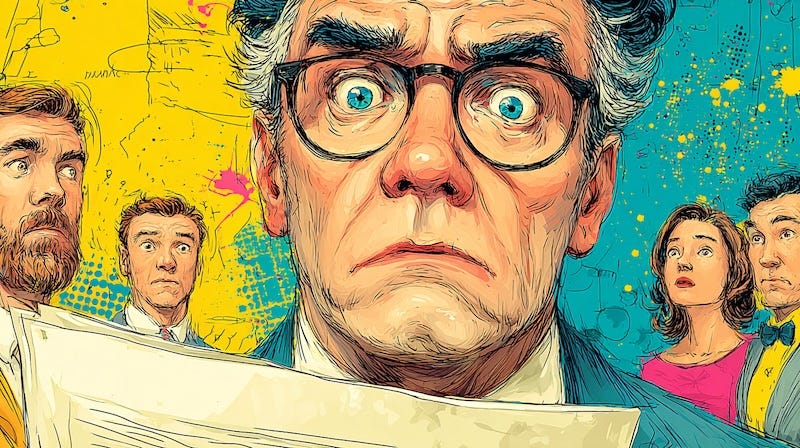327. Hero Syndrome
When leaders need to be heroes, they create villains. First it's competitors. Then clients. Eventually? Their own teams. It's time to demystify Hero Syndrome.
This is The Best Leadership Newsletter Ever, the most fun way to learn life’s leadership lessons.
Clark is the CEO of an $80m company. He’s really good at fixing problems. That’s why he became CEO.
Clark is my client. I’m his leadership coach.
Also, Clark isn’t his real name, so don’t bother trying to figure out who he is.
Anyhoo, Clark is considering a merger with another company. You see, there are limitations with his company’s technology, and he thinks he can best overcome the issue with the merger.
He may be right, he may be wrong. He knows this. So, Clark tasked his team to do an analysis of the potential transaction.
They did their best and presented their results to him on the date he asked.
Clark wasn’t happy.
What the team showed him did not have the information in the way Clark wanted to see it. So he had the team do the research and present it again. And again.
Aaaand again.
The team was confused. They felt like they were doing exactly as they were instructed, but Clark kept telling them they were doing it wrong.
The deadline to make a decision was fast approaching.
The team was frustrated with Clark, and Clark was frustrated with his team.
With the sand quickly dripping out of the hourglass, Clark decided to do the work himself.
I heard all about this yesterday while Clark was venting to me about how useless his team was and how he has to continually come in to save the day.
He described it all to me as if he were some kind of hero or something.
You know what, let’s hold off on Clark for a second.
I have to tell you a story about the Olympics.
The Olympics Of Hero Syndrome
In 1984, the summer Olympics were held in Los Angeles.
I don’t know if you heard about this, but a bomb was planted on the bus of Turkey’s Olympic team. It could’ve been an enormous tragedy.
But thanks to LAPD officer Jimmy Wade Pearson, the bomb was discovered before it was detonated.
As the only officer available at the scene, Pearson pulled out the bomb’s wires and then ran the bomb out onto a runway before it could explode and injure people.
He risked his life, and he risked an Olympic catastrophe.
If that’s not heroic, I don’t know what is.
Needless to say, Pearson was hailed as a hero.
He saved the day.
Jimmy P for the win.
That lasted twenty-four hours.
The next day, Officer Jimmy Wade Pearson was arrested for planting the bomb himself.
As it turns out, all Pearson wanted was to be seen as a hero. To do that, he created a scenario that needed a hero to save the day. Then he made sure he was that savior.
And that’s how the concept of Hero Syndrome was born.
The Hero Syndrome Leader
Hero Syndrome is a problem in the workforce.
Great leaders are not heroes. At least they shouldn’t be. Being a hero isn’t the job of leadership.
There’s a simple reason for this, and it comes down to the purpose of a hero.
Every hero needs a villain. You can’t be a hero without one.
So if you want to be a hero and there is no villain, you have to create one.
When a leader needs to be the hero, they will find villains. It could be clients, or the Board, or the competitors. But eventually, given enough time, the leader will run out of external villains. They will be forced to turn internally and vilify their employees.
That’s bad.
It’s really bad.
And that is exactly what my client, Clark, was doing with his team.
Truthfully, hero syndrome happens all the time, with different levels of severity. I see it far too much in my executive coaching business.
The leaders who want to be heroes will set up their teams to fail, so that they can step in and save the day.
I want to thwack them across the face.
The Addiction of Heroism
Being the hero feels great. I get it. I love being the hero.
You get admiration.
You get validation.
You get recognition.
It’s awesome.
But heroism could be a drug. The more you get, the more you want. And the more you want, the less effective it becomes.
Soon, you don’t even realize you’re trying to be the hero. Your focus isn’t on what you did to succeed, but on what others did to fail.
Here’s the problem: leaders with Hero Syndrome end up micromanaging, dis-empowering others, and undermining people’s autonomy. The more they do it, the worse it gets.
Hero Syndrome leaders are toxic.
Why Great Leaders Aren’t the Hero
Great leaders are not the hero; they’re the guide. The true heroes are the people they serve who are on the frontline doing the work.
As a leader, it is your job to create the conditions that allow your team to win. In fact, I’d say that’s your most important job.
And that’s why you can’t be the hero. Other people can’t win if you’re the one who needs to be the hero. And if they can’t win, they can’t grow. And if they don’t grow, you’re not a good leader. Period. End of story.
From Hero to Guide
Here’s what I want you to do. Next time you’re in a meeting where you find yourself problem-solving with your team, ask yourself this quick question:
“Am I acting like a hero, or am I acting like a guide?”
If you’re in a Star Wars mood, maybe go with:
“Like Yoda am I being or like Luke?”
If you’re not the guide, you need to shift the spotlight. Stop being the one with all the answers. Start asking more questions. Praise your team. Encourage them and empower them.
And most importantly, stop rescuing people from problems they can solve themselves.
Hiding Hero Syndrome
After my conversation with Clark, he went back to his team. He apologized for the runaround and asked them what more they needed to give him the analysis he was looking for.
Turns out, it wasn’t that the team was giving Clark bad information, it’s that Clark didn’t want to acknowledge its accuracy.
The merger decision? Made within the week. And it was mostly made by the team with Clark as their guide, not their savior.
The best leaders don’t save the day. They create the conditions for others to save it themselves.
So stop looking for villains to vanquish and start looking for heroes to guide.
Are you ready to get on the path to a promotion?
Join all the curious leaders building better habits.
Join The Best Leadership Community Ever
How good is your leadership?
Take the free assessment
Subscribe to The Best Leadership Podcast Ever
YouTube
Apple
Spotify
or your favorite podcast player.








Hero Syndrome sneaks in when leaders confuse control with care. Real leadership isn’t about swooping in with answers, but rather it’s about empowering your team to own the process and the outcome. Empathy means trusting others enough to stop performing and start listening.
This was really interesting and informative, Jeff. Good reading!